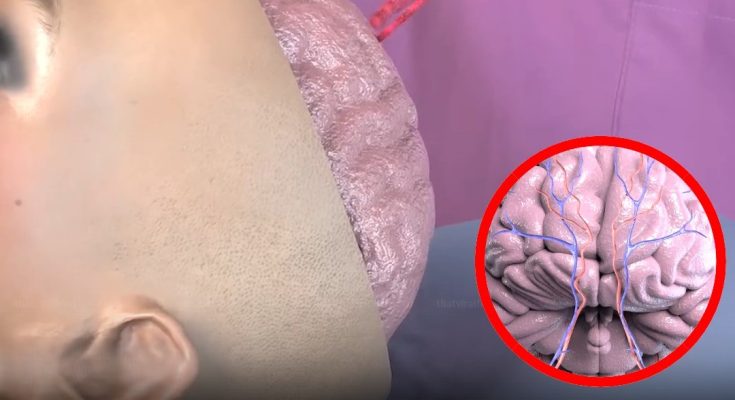The worm was discovered alive during a groundbreaking surgery performed by doctors.
If you’re snacking on vegetables while reading this, you might want to pause for a moment—it’s not for the faint-hearted.
A simulation has been created to showcase the shocking experience of a woman whose case made global headlines last year.
Surgeons had to perform a highly delicate brain operation after an unusual discovery.
Dr. Hari Priya Bandi, who led the intricate procedure on a 64-year-old woman in Australia, was stunned by what she encountered during the surgery.
The woman’s ordeal actually started back in 2021 when she was first hospitalized due to persistent health issues.
She experienced three weeks of stomach pain, and severe diarrhea, and later developed a cough and fever.
As months passed, her condition worsened, and she began showing signs of forgetfulness and depression, according to a report by CNN.
Eventually, she was admitted to the hospital once again.
An MRI scan revealed something unusual in her brain, prompting doctors to make the critical decision to operate and investigate further.
What they found was beyond anyone’s expectations—a three-inch live worm residing inside her brain.
Upon further analysis, the parasite was identified as Ophidascaris robertsi, a roundworm typically found in pythons.
The simulation explains how these worms usually live within pythons, which excrete the worm eggs through their feces.

The shocking ordeal marked a world first BBC News
Experts suspect the eggs made their way onto wild greens that the woman consumed.
One of the eggs is believed to have hatched in her gut and then traveled to her brain through her bloodstream.
This was a groundbreaking case—the first-ever discovery of a live worm found in a human brain.
The story has left the medical community and the public alike in awe of the rare and unprecedented situation.
Dr. Bandi commented: “I’ve only come across worms using my not-so-good gardening skills,”
She added: “I find them terrifying and this is not something I deal with at all.”
According to Canberra Hospital infectious disease expert Sanjaya Senanayake, the worm was immediately identified by an animal parasitology expert to whom it had been sent for examination.
Senanayake elaborated: “To our knowledge, this is also the first case to involve the brain of any mammalian species, human or otherwise,”
The case itself is enough to make your skin crawl, but the recently released simulation has taken the discomfort to a whole new level.
One viewer shared their thoughts on the video, saying: “A worm living inside my brain is literally my worst nightmare.”
Another echoed the sentiment, commenting: “Watching this with a headache is absolute nightmare fuel.”
Some users took a more humorous approach, joking about avoiding vegetables altogether after hearing the story.
One person quipped: “Moral of the story: Eat cheeseburgers and not salads,”
Another added: “New achievement: excuse to not eat green veges to mother.”



